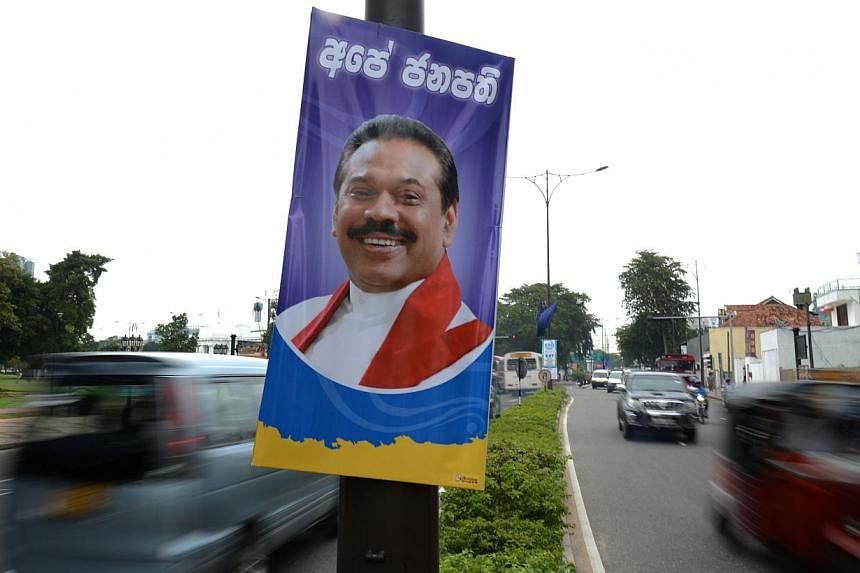COLOMBO (AFP) - Veteran Sri Lankan President Mahinda Rajapakse confirmed on Thursday he will seek an unprecedented third term in office, with snap elections expected in January.
"President signs proclamation declaring his intention to hold a Presidential Election seeking another term," Mr Rajapakse's office said in a statement.
The announcement came after Information Minister Keheliya Rambukwella had earlier said the election would be held in early in January, while not giving an exact date.
Officials speaking on condition of anonymity said nominations could be called in the first week of December and the vote was likely to take place on a single day between Jan 7 and Jan 9.
Pro-government astrologers have previously said that the first week of January would be the most auspicious for the President.
Mr Rajapakse came to power after narrowly winning the 2005 election and went onto to increase his majority in 2010 after government troops crushed separatist Tamil rebels at the end of a 37-year war.
The 69-year-old had promised in 2005 to return the country to a Westminster-style parliamentary democracy by abolishing the all-powerful executive presidency.
But after winning a second term, he rewrote the Constitution, removing the two-term limit on the presidency and giving himself more powers over the entire administration.
The election is being held two years ahead of schedule. Under the island's Constitution, the incumbent is allowed to call fresh polls after completing four of his six years in office.
It is the first time in that a President has sought a third term since the former British colony, which lies at the foot of India, adopted a presidential system of government in 1978.
Mr Rajapakse's United People's Freedom Alliance vote share plummeted at local elections in September as it suffered its worst performance since he came to power nine years ago.
However, a fractured opposition has failed to agree on a common candidate who could mount a serious challenge to Mr Rajapakse.
And despite the struggles of his party, Mr Rajapakse himself remains popular among the majority Sinhalese community after he oversaw the victory over the Tamil Tigers rebels in 2009.

